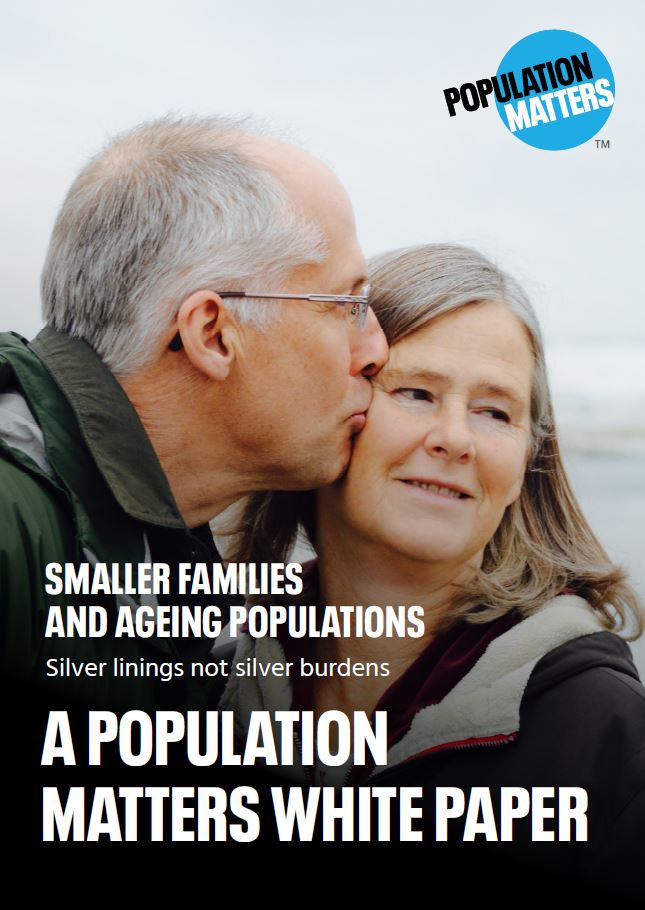
Pronatalism in the UK: should we be worried?
The recent National Conservativism Conference attracted a lot of newspaper column inches for what was a brand-new event on these shores. Backbench MP Miriam Cates made a bit of a splash with a speech focusing on family values and the importance of having children. Is there anything to be wary about here?
Conservative MP Miriam Cates rose to national prominence this month with a speech delivered to the conference in London. The event was organised by the Edmund Burke Foundation, a US-based right-wing populist think tank, to espouse the ideology of national conservatism. Although this was the first conference of its kind in Britain, they have previously taken place in Italy, the US and Belgium.

Cates spoke of a national “malaise” towards having children, which she believes requires government intervention for the sake of society. She mentioned a “collapsing birth rate” on more than one occasion and claimed that it cannot just be economic factors that are stopping people from having children, but a lack of infrastructure and direction, set by government, and sense of national duty.
She pointed to Finland as the prime example, where the average person earns more, enjoys a superior welfare system and as a society tops the charts of the happiness index, yet their Fertility Rate (TFR) is under 1.4. She sees this as proof that government should be more involved in their citizens’ reproductive choices, failing to make the connection that these favourable living conditions allow people to choose if, when and how many children they will have meaning, generally, people will have fewer children.
Perhaps the speech most reported on was by the Tory backbencher Miriam Cates, who part-channelled Viktor Orbán and Giorgia Meloni in describing low birthrates as an existential crisis for the west. The populist leaders of Hungary and Italy are explicit in wanting more domestic-born children as against immigrants, a point Cates did not make, although it was arguably implicit.
Peter Walker, The Guardian
In some respects, her speech harked back to an unspecified idyllic moment in history, where people remained in their home town with the support of the family unit, bought a house before they were 25 and were parents before their 30th birthday. The husband worked and the dutiful wife made house and raised the children.
But the reality is this narrative, were we to take it seriously, could put us on a path towards women being stigmatised for their choices and even having their sexual and reproductive rights restricted. This isn’t just hyperbole – we are seeing it happen in other parts of the world.
Beware the precedents
Population Matters monitors pronatal rhetoric and policies globally, featuring the most significant and worrying developments on our Gilead Watch page.
A quick look around Europe and further afield shows how dangerous this rhetoric can be, and how it’s often laced with nationalism and prejudice. Victor Orban has shut Hungary’s borders and is actively encouraging the white, Christian, heterosexual population to reproduce. He’s done this through tax exemptions for families with more than four children, creating barriers to abortion, talking down education and economic equality for women, and all while trying to erase LGBTQ identities and espousing the racist “Great Replacement” theory.
It’s not just Hungary. Poland has severely restricted access to abortions and contraceptives. In Turkey, President Erdogan told a male politician with one child and a wife doing a PhD, that his wife’s “career is to give birth to children”. Abortion access has become much harder in Italy since Giorgia Meloni’s Brothers of Italy party won power last year, and her party has engaged in rhetoric talking up Italian identity and demonising immigrants.
In the US last June, the Supreme Court overturned Roe v. Wade, the landmark ruling that had protected a woman’s right to have an abortion. This was able to happen thanks to a gradual shift to a conservative majority on the Supreme Court, with three new appointees by then-President Donald Trump leaving it with a 6-3 majority.
Back in the UK
So, is there any evidence that things are moving in the same direction in the UK? While Miriam Cates’ comments at the NatCon convention were concerning, just how much support for these ideas is there?
The truth is, her viewpoint is currently quite fringe, but there is evidence of a certain amount of hysteria around these issues. The subjects of low birth rates and ageing populations are frequently referenced from an economic perspective, so just a small shift in government values or priorities could bring certain policy ideas into the mainstream. It’s also not the first time we’ve run into these arguments in the UK.
In 2021, the respected think tank the Social Market Foundation published a report advocating for action to address UK birth rates. The report was certainly noticed. Last year, The Sun ran an article with the on-the-nose headline, Bonk for Britain. It reported that an unnamed cabinet minister was proposing that women should receive tax cuts for having children in order to stem declining birth rates and encourage a “baby boom”, a policy that was frighteningly described by The Sun as both similar to Orban’s Hungary and “wacky”.
In the lead-up to World Population Day 2022, demographer Paul Morland suggested that a tax should be introduced on those without children to tackle the population “crisis”. He argued it was important to incentivise parenthood, that women should be educated that it’s harder to get pregnant later in life and they should receive a letter from the Queen on the birth of their third child.
In December 2022, the Mail on Sunday ran an article declaring Britain’s birth rate in peril as half of adults rule out having children. In it, they claimed a new study suggested half of women aged 18 to 50 were not planning to have children and pointed to the cost of childcare as one of the key factors.
UPDATE: October 2023. In the months since this piece was written, Conservative polictians have continued to speak on this issue. In July, influential right-winger Jacob Rees-Mogg told GB News that “the idea that having children is damaging the environment is mistaken. I’ve done my bit by having six, so now let me encourage you to do yours.” In October, immigration minister Robert Jenrick spoke at a fringe meeting of the Conservative Party Conference, linking a call for people to have more children to combat ageing with calls for more limited immigration.
A phantom menace
Why does a lower birth rate matter? Some assert, on little evidence, that it will lead to a society less dynamic and innovative. Population Matters debunked such claims by Elon Musk in our 2022 analysis of his views.
A far more persuasive argument often put forward is the consequence of an ageing population – that more retired people put ever more pressure on health and care systems but contribute less economically, therefore needing to be propped up and supported by younger generations paying into the system. But this is dripping in short-termism.

Where does that particular pyramid scheme end? Every generation would require ever more young people to support the new tranche of retirees, all the while each extra person on the planet exacerbates the environmental crises we’re facing.
Instead, we need to explore positive, creative policies to deal with ageing populations. Those include greater productivity and labour force participation, lifelong learning, pension reform, investment in preventative health measures and harnessing the power of fit, talented retired people to contribute to our communities. You can read more about our proposals in our 2021 report on ageing populations, Silver linings not silver burdens, which concludes:
An ageing world is not at all as grave a problem as the headlines would have us believe, and it is certainly solvable. We already have all the tools we need and we can use them under any economic system, including the current one. A reorientation of economic priorities towards wellbeing and sustainability would, nevertheless, help us to recognise the true human value of this enterprise. Getting old in health and security is a privilege, and one we hope we and our children and grandchildren will all get to do on a healthy planet. Let’s ensure it.
Why are people having fewer children?
Of course, there are many reason people are deciding against having kids, in the UK and throughout the Global North. There can be little doubt that negative factors, such as lack of financial security, possible negative impacts on career development and expenses associated with having children – especially childcare costs – prevent some people having as many children as they would otherwise choose.
But coupled with that are the often ignored factors relating to personal choice. People have incredible access to contraception and sexual health materials in this country, so there are fewer accidental pregnancies and greater personal agency. Great strides have been made towards equality in recent decades, so many women are deciding to focus on their careers and have children later in life. And some people are just deciding that having kids is not for them, and rather than stigmatising them we should be celebrating the fact they’re able to make that call.
Taking action
The right for people to have control over their own fertility, which means control over if, when and how many children they want to have is at the core of our advocacy. There is absolutely no place for coercion or control. Population Matters will always challenge the pronatal agenda, and oppose and call out any government looking to restrict women’s rights or stigmatise those who choose smaller families.
Population Matters is also calling on the UK Government and political parties to engage fully and holistically with population issues, to ensure a reasoned, evidence-based debate, in place of rhetoric, and the development of integrated, rational and fair policies to address the challenges the country faces.
If you want to follow our work, please consider signing up to receive monthly emails here, or follow us on Twitter.


